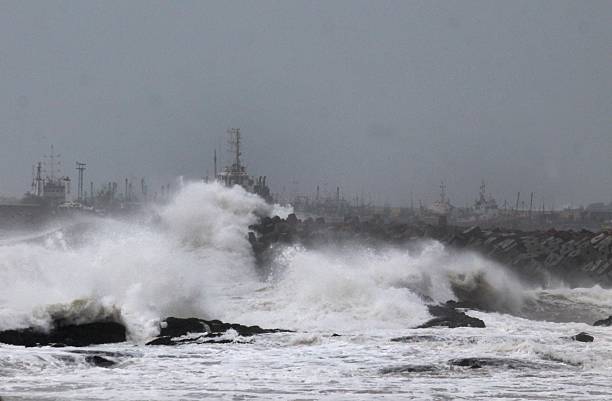VISAKHAPATNAM: We are well aware that the global sea level is rising considerably more quickly than is predicted and expected. The average worldwide sea level has increased by around 4 millimetres each year during the past ten years (1.5 inches per decade). With a total length of 974 km between Ichchapuram in the Srikakulam district and Tada in the Nellore district, Andhra Pradesh has the second-longest mainland coastline. A recent report from the Ministry of Earth Sciences states that 28.7% of AP’s coastline is eroding to some extent.
According to Sri Chakra Pranav, a marine scientist and the founder of the East Coast Conservation Team, in an interview with TNIE, many areas of the State have been affected by climate change and increasing sea levels, but further research is needed to identify how severely.
“How well-studied marine life is should be taken into account when discussing marine life quality. Insufficient research has been done to determine if the quality has improved or declined. Compared to the west coast, the east coast is less widely researched. Tamil Nadu and the Sundarbans of West Bengal are the most researched regions, even on the east coast. Data gathering on commercial fishing is given greater attention than the advantages that marine life provides to humans. Neither study focuses on the sustainability of commercial fisheries, and little research is being done on marine species that isn’t used for human consumption.
“Areas like Uppada and certain sections of Srikakulam illustrate the consequences of climate change on our coastal areas,” the speaker continued. Over time, the beaches have made significant advancements. Even RK Beach in Vizag has advanced significantly recently. This is a result of rising sea levels. While the climate is naturally warming, the pace is being accelerated by pollution and unsustainable practises. It is occurring far more quickly than it should.
Because marine life is extremely sensitive to temperature variations, the ideal temperature for coral growth is often between 23 and 29 C. Corals also perish as a result of the rising water temperatures, much as people are prone to mortality in hot weather circumstances. Because so many creatures rely on corals for sustenance, the principal food source is disappearing, disrupting the food supply.
He said, “Unfortunately, people don’t know enough about the marine species that exists here to point out the lack of awareness regarding marine life. We must first acknowledge their existence before we can take action to help them. No of their age, residents of coastal regions should understand at least the fundamentals of their oceans and seas in order to preserve the remaining life left out there.”
The present condition of fishing is that “Many marine creatures perish as a result of inadvertent captures. In recent years, the amount of the catches has also declined as a result of commercialization and overfishing. The younger fishermen in their 30s don’t seem to have any conventional ecological understanding of what they are doing in terms of fishing communities. They don’t want to learn it from their elders; they are only performing it as part of their work. The older, more experienced fisherman, who have been in the industry for a longer time, are more knowledgeable about fishing and the sea than they are. If traditional knowledge is not maintained before it is permanently gone, there may be a significant knowledge vacuum shortly, he warned.







